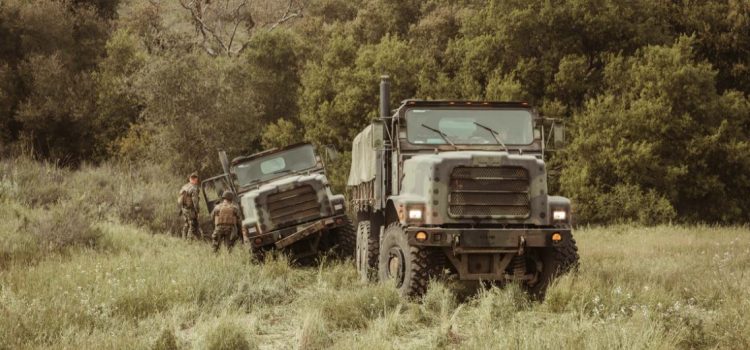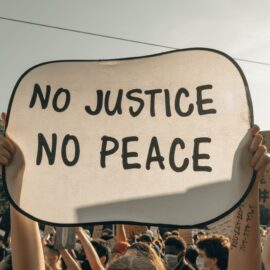

This article is an excerpt from the Shortform book guide to "The Bottom Billion" by Paul Collier. Shortform has the world's best summaries and analyses of books you should be reading.
Like this article? Sign up for a free trial here .
Does humanitarian military intervention actually work? Should the West be intervening in foreign military affairs?
Military aid is a dicey topic. Some believe it works, while others are strictly against it. Economist Paul Collier, the author of The Bottom Billion, believes that it’s necessary for restoring order, keeping the peace, and protecting against coups.
Here’s why Collier thinks military intervention is crucial in helping developing nations grow.
Military Intervention
Paul Collier argues that military intervention is an important tool for Western governments to prevent violence in susceptible nations. Although these interventions are controversial, Collier argues that when done properly, the benefits substantially outweigh the costs. When Western nations dismiss the option entirely, the results can be catastrophic.
Collier says military interventions serve three functions:
- Restoring order
- Keeping the peace
- Insuring against coups
Restoring Order
According to Collier, Western governments have an obligation to intervene in failing states lacking a functioning government. There is, of course, a risk to Western troops tasked with restoring order. However, Collier believes the costs of not intervening are far greater, both to the bottom billion, who languish in disorder, and to Western nations that face the repercussions of terrorism and epidemics that arise from the chaos.
Collier highlights Somalia, a case where a sustained military intervention would have worked well. Instead, the American military intervened in 1993 when the government collapsed, but then withdrew after negative public reaction to 18 American casualties. By 1995, there were 300,000 Somali casualties. When Collier’s book was published in 2007, Somalia was still without a functioning government. Additionally, Somali refugees have gone on to commit acts of terror in the West.
| Mission Creep in Somalia While Collier says that pulling out of Somalia was a mistake, many consider the events in Somalia a case of mission creep—the tendency of military leaders to keep broadening the scope of their mandate. In 1992, President George H.W. Bush sent 28,000 troops into Somalia to help feed starving children. Then, a group of them stayed as part of a UN peacekeeping initiative. Given the success of these objectives, the US military took on the task of trying to chase down the warlord Mohamed Farah Aideed. The mission culminated in two American helicopters being shot down, and the failure prompted President Clinton to withdraw troops from Somalia. Collier argues that this decision led to later inaction in response to atrocities. |
Keeping the Peace
In addition to restoring order, Collier believes Western military forces acting as peacekeepers can reduce the likelihood of violent relapse following a civil war. These are situations in which Collier contends that foreign governments and their citizens welcome military intervention. For example, British forces intervened in Sierra Leone when rebels took UN workers hostage. With only a few hundred troops, Britain was able to disband the rebel group.
(Shortform note: British troops intervened in Sierra Leone in 2000, when rebels rejected a peace agreement and threatened Sierra Leone’s capital. They were able to repel the insurgency, and stayed for two years to oversee the democratic transition that occurred in May 2002.)
Insurance Against Coups
Militaries can also intervene when the threats of coups arise. Collier proposes Western governments work in alliance with the African Union to make this practical. The African Union could supply legitimacy to the interventions, and the West could provide the manpower. As things are now, European governments with troops stationed in unstable regions often step aside and let coups happen, for fear of overstepping their authority. Collier acknowledges that following the US war in Iraq, there is little appetite for military interventions. But in these three capacities, he believes they can be helpful.
| Critics Question the Effectiveness of Military Intervention William Easterly believes military intervention is unlikely to act as insurance against coups (as Collier argues) because coups often happen too quickly for the West to be able to respond. He also considers it misguided for Collier to assume that deploying troops to Rwanda, for example, would have prevented the atrocities that occurred. Finally, Easterly says people in poor nations grow skeptical of foreign aid when it’s combined with a military component, and they may see it as a pretext for occupation. Other scholars argue that interventions in Africa to thwart terrorism have failed. They contend that military operations that result in civilian casualties only fuel extremist groups, as does Western support of oppressive governments. |

———End of Preview———
Like what you just read? Read the rest of the world's best book summary and analysis of Paul Collier's "The Bottom Billion" at Shortform .
Here's what you'll find in our full The Bottom Billion summary :
- How development aid programs pay too little attention to struggling countries
- A look at the four poverty traps, and the four remedies for them
- How conditions for the bottom billion are changing






